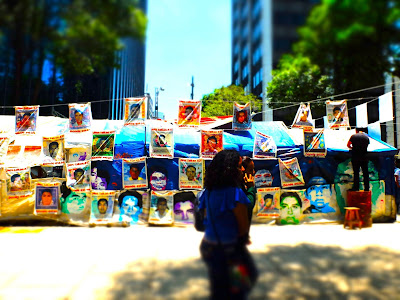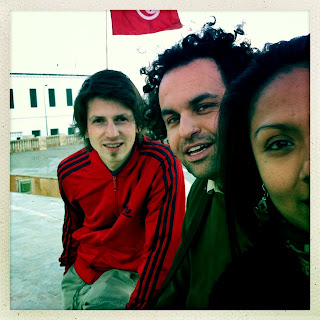Open City Museum at the 13th EASA Biennial Conference
The art project “Open City Museum” will be presented at the 13th Biennial Conference of EASA, the European Association of Social Anthropologists, as an example of participatory art projects that critically reflect upon the notions of social empowerment, collaboration, and community.
Johanna Mitterhofer, researcher at the European Academy Bozen-Bolzano (EURAC) and collaborator of Open City Museum, will present the paper “Compromising art? Participation and the politics of art in a pluri-ethnic society” using as a case study, Open City Museum, a participative art project in South Tyrol, Italy.
“Astra la Vista film screening night – Young change makers”, Open City Museum, Bressanone/Brixen – South Tyrol 2014.
Open City Museum (www.opencitymuseum.com, OCM) describes itself as an “intercultural and participative art project for museums and their communities”. Devised by the non-profit org Cuartel – Headquarters for art & culture, OCM uses art as a tool to promote social cohesion and has activated a network between several non-profit organizations, public administration offices, private institutions and artists in South Tyrol, Italy. South Tyrol is characterised by a peaceful but uneasy co-existence between its Italian and German-speaking population. A growing number of migrants — the “new” minorities — are adding further complexity to the local context by challenging, through their mere presence, the established binary of German versus Italian which up to now has been defining South Tyrolean politics and daily life.In a context where cultural policy and art funding are split neatly along increasingly blurry ethno-linguistic boundaries, and tightly intertwined with politics, the willingness to seek compromise and to accept compromise as opportunity rather than failure, is central to the success of OCM’s participative art projects.
In her presentation, Johanna Mitterhofer explores compromise as a collaborative practice. It examines how compromises are envisioned, formulated and enacted by locals with and without migration background, professional artists and political authorities throughout the various project stages: from defining what art is, to negotiating the relationship between art funding, cultural policy and art itself, to developing an understanding of art and cultural heritage open to, and shared among, all members of society. Finally, the presentation poses the question how participants negotiate the fine line between productive compromises and compromises that may “compromise” artistic and social ideals.
02 August, 2014, 09:00 am, M-134 , Department of Social and Cultural Anthropology, Estonian Institute of Humanities, Tallinn University, Estonia.
Collaboration, Intimacy & Revolution
- innovation and continuity in an interconnected world
Department of Social and Cultural Anthropology, Estonian Institute of Humanities, Tallinn University, Estonia
31st July – 3rd August, 2014





Comments